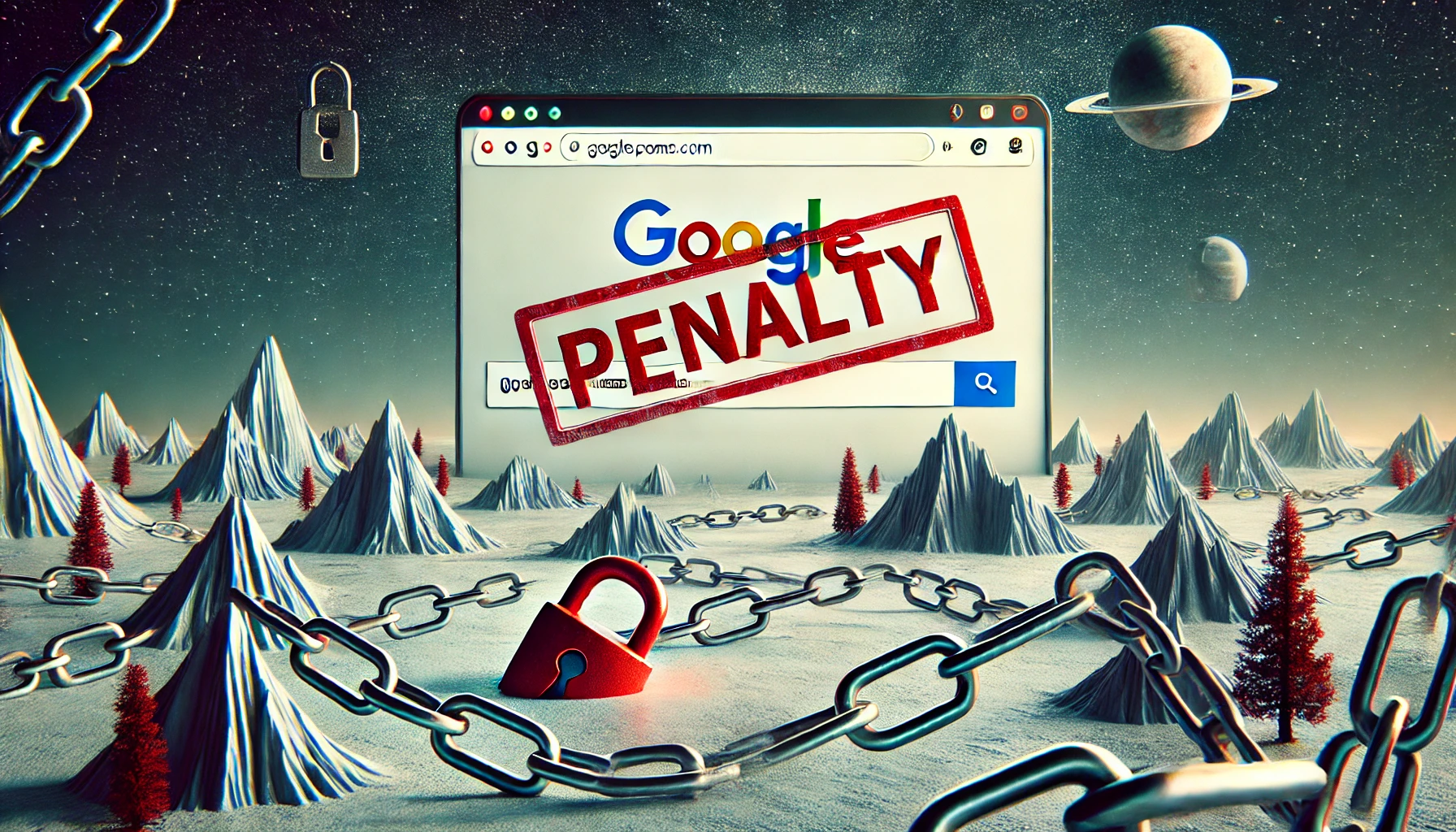Let’s start with the million-dollar question: Does Google actually penalize AI content? The short answer is no, but as with most things in the world of SEO, it’s not quite that simple.
Google has made it clear that their algorithms don’t automatically penalize content based on its origin. Whether a piece of content is crafted by a human wordsmith or generated by an AI, Google’s primary concern is its quality, relevance, and usefulness to users.
In fact, Google’s recent updates, including the Helpful Content Update, have shifted focus towards rewarding high-quality content, regardless of how it was created. This marks a significant change in the SEO landscape, moving away from the old paradigm of “human-written is always better” to a more nuanced approach.
Quality Over Origin: The New Paradigm
In my years of experience, I’ve learned that Google’s algorithms are becoming increasingly sophisticated in evaluating content quality. Here’s a breakdown of what really matters:
- Relevance: Does the content answer the user’s query effectively?
- Depth: Does it provide comprehensive information on the topic?
- Accuracy: Is the information up-to-date and factually correct?
- Readability: Is the content easy to understand and well-structured?
- User engagement: Do readers find the content valuable and spend time with it?
These factors apply equally to both AI-generated and human-written content. The key takeaway? Focus on creating value for your readers, and you’ll be on the right track, regardless of how you produce your content.
E-E-A-T: The Four Pillars of Content Excellence
One of the most crucial concepts in modern SEO is E-E-A-T: Experience, Expertise, Authoritativeness, and Trustworthiness. These principles are at the heart of how Google evaluates content quality. Let’s break them down:
| Pillar | Description | How to Demonstrate |
|---|---|---|
| Experience | First-hand knowledge of the topic | Share personal anecdotes, case studies |
| Expertise | Deep understanding of the subject matter | Include detailed explanations, cite credible sources |
| Authoritativeness | Recognition as a reliable source | Build a strong online presence, get mentions from other authoritative sites |
| Trustworthiness | Credibility and transparency | Provide accurate information, disclose affiliations |
In my journey as a content creator, I’ve found that focusing on these pillars not only improves search rankings but also builds a loyal readership. Remember, E-E-A-T applies to both AI and human-generated content. The challenge with AI is ensuring it can effectively demonstrate these qualities, which often requires human oversight and input.
AI Content Detection: Myth vs. Reality
There’s been a lot of buzz about Google’s ability to detect AI-generated content. While it’s true that Google has developed advanced algorithms capable of identifying patterns typical of AI writing, this doesn’t mean all AI content will be flagged or penalized.
In my experience, the reality is more nuanced. Google’s detection capabilities are less about identifying AI content per se and more about spotting low-quality, mass-produced content that doesn’t provide value to users. This approach aligns with their overall mission to deliver the best possible search results.
So, what does this mean for content creators? It underscores the importance of quality, regardless of how your content is produced. If you’re using AI tools, focus on leveraging them to create unique, valuable content rather than churning out generic, low-quality material.
Best Practices for Using AI in Content Creation
As someone who’s experimented with various AI writing tools, I’ve developed a set of best practices for integrating AI into your content strategy:
- Use AI as a starting point, not an end product
- Always fact-check AI-generated information
- Infuse your unique voice and experiences into the content
- Tailor the content to your specific audience
- Regularly update and refine your AI-generated content
Remember, AI is a tool, not a replacement for human creativity and expertise. The most effective content strategies combine the efficiency of AI with the nuance and insight that only humans can provide.
Skyrocket Your Website Traffic:
AI-Powered Content Marketing Mastery
Learn how I grew my blog to 15,000+ monthly visitors using AI-powered content strategies. Join my 1:1 coaching program to build your content empire in just 5-8 weeks.

The Human Touch: Why It Still Matters
While AI has made tremendous strides in content creation, there’s still no substitute for the human touch. As a writer and marketer, I’ve found that the most engaging content often comes from personal experiences, unique insights, and emotional connections that AI simply can’t replicate (at least not yet).
Human oversight is crucial when using AI-generated content. This involves:
- Reviewing for accuracy and relevance
- Adding personal anecdotes and examples
- Ensuring the content aligns with your brand voice
- Tailoring the message to your specific audience
- Injecting creativity and original ideas
By combining AI efficiency with human creativity and expertise, you can create content that not only ranks well but also truly resonates with your readers.
Future Trends: AI and SEO
As we look to the future, it’s clear that AI will play an increasingly significant role in content creation and SEO. Here are some trends to watch:
- More sophisticated AI writing tools
- Increased focus on user intent and context in search algorithms
- Greater emphasis on E-E-A-T in content evaluation
- Integration of AI in content personalization
- Evolving guidelines from search engines on AI content use
Staying ahead of these trends will be crucial for content creators and marketers. It’s not about choosing between AI and human-written content, but rather finding the right balance to create the best possible content for your audience.
Conclusion: Navigating the AI Content Landscape
So, does Google penalize AI content? The answer is no, not inherently. What Google penalizes is low-quality, unhelpful content, regardless of its origin. As we’ve explored, the key to success in the age of AI content is focusing on quality, relevance, and value to your audience.
As content creators, our challenge is to harness the power of AI while maintaining the human touch that makes content truly engaging. By following best practices, staying true to E-E-A-T principles, and always prioritizing your audience’s needs, you can create content that not only ranks well but also builds lasting connections with your readers.
The future of content creation lies not in choosing between AI and human writers, but in finding the perfect synergy between the two. Embrace this new era of content creation, but never lose sight of what truly matters: creating value for your audience.
TL;DR
Google doesn’t penalize AI content outright but focuses on content quality regardless of origin. Key points:
- Quality, relevance, and usefulness are paramount
- E-E-A-T principles apply to all content
- AI detection is more about identifying low-quality content
- Best practices include human oversight and infusing a personal touch
- The future involves balancing AI efficiency with human creativity
Q&A
Q1: Is it necessary to disclose when content is AI-generated?
A1: While not strictly required by Google, transparency can build trust with your audience, especially in sensitive topics like healthcare or finance.
Q2: Can AI-generated content rank as well as human-written content?
A2: Yes, if it meets Google’s quality standards and provides value to users, AI-generated content can rank just as well as human-written content.
Q3: How can I ensure my AI-generated content meets E-E-A-T standards?
A3: Combine AI tools with human expertise, add personal insights, cite credible sources, and tailor the content to your specific audience.
Q4: Will AI eventually replace human content creators?
A4: While AI will continue to evolve, human creativity, expertise, and emotional intelligence remain crucial in content creation. The future likely involves collaboration between AI and human creators.
Q5: How often should I update AI-generated content?
A5: Regularly review and update your content, regardless of how it was created. Aim to keep information current and relevant to maintain rankings and provide value to your audience.
AI Content Quiz
- What is Google’s primary focus when evaluating content? a) Whether it’s AI-generated b) The author’s reputation c) Quality and relevance to users d) Word count
- What does E-E-A-T stand for in the context of content creation? a) Engage, Entertain, Attract, Transform b) Experience, Expertise, Authoritativeness, Trustworthiness c) Efficient, Effective, Accurate, Timely d) Evaluate, Edit, Analyze, Test
- True or False: Google automatically penalizes all AI-generated content. a) True b) False
- Which of the following is NOT a best practice for using AI in content creation? a) Using AI as a starting point b) Fact-checking AI-generated information c) Relying entirely on AI without human oversight d) Infusing personal experiences into the content
- What’s the recommended approach for creating high-quality content in the age of AI? a) Using only human writers b) Using only AI tools c) Balancing AI efficiency with human creativity and expertise d) Focusing solely on keyword density
Answers:
- c) Quality and relevance to users
- b) Experience, Expertise, Authoritativeness, Trustworthiness
- b) False
- c) Relying entirely on AI without human oversight
- c) Balancing AI efficiency with human creativity and expertise
Scoring Interpretation:
0-1 correct: Time to brush up on your AI content knowledge! Review the article and focus on understanding Google’s approach to content evaluation.
2-3 correct: You’re on the right track! Pay attention to the E-E-A-T principles and best practices for using AI in content creation.
4-5 correct: Excellent! You have a solid grasp of how to effectively use AI in content creation while meeting Google’s quality standards. Apply this knowledge to optimize your content strategy.




